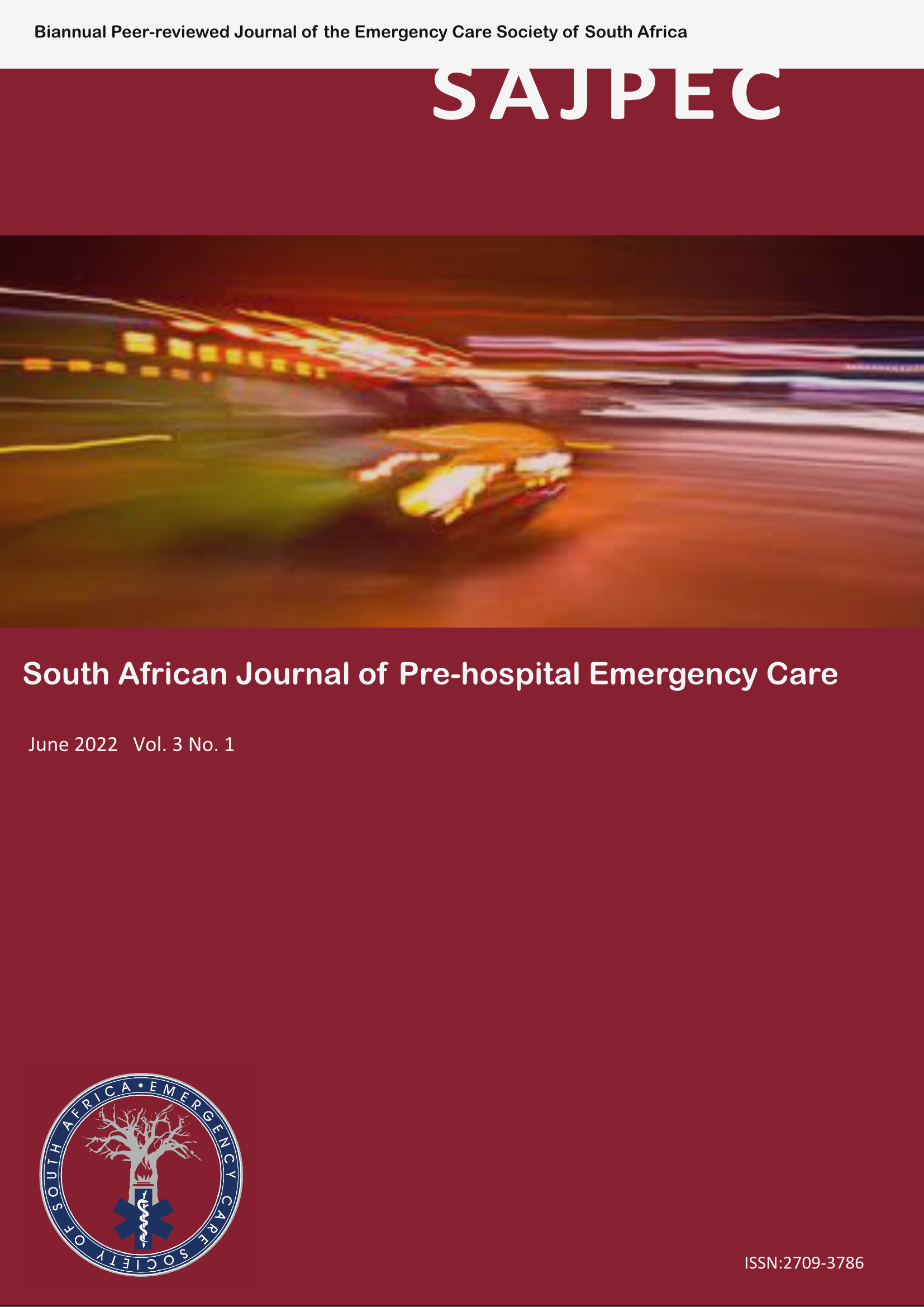Simulated clinical scenarios: The experiences of Emergency Care Practitioner students
Abstract
Background: Simulation education as a strategy is used extensively in Emergency Medical Care Departments. The literature in this field strongly suggests positive effects on patient safety and student-readiness. Simulation education strategies often fail to address the student experiences in the classroom. The aim of this study was to explore how Emergency Care Practitioner (ECP) students experience simulated clinical scenarios.
Methods: This study was conducted at a South African University in the Gauteng province. Data was collected through semi-structured interviews. Convenience sampling was used to recruit participation. Data saturation occurred after six interviews. Open coding was used to code the transcripts.
Results: ECP students experienced simulated clinical scenarios to be a highly beneficial teaching and learning experience, but experienced simulation as a nerve-racking assessment tool that requires excellent debriefing and feedback to improve its effectiveness. High-fidelity simulation scenarios, that are built on real-life context, are received most favourably by students.
Conclusions: ECP Students find simulated clinical scenarios to be valuable in their education. To achieve a favourable simulation experience for ECP students excellent debriefing and feedback protocols need to be implemented. Availability of time to practise in the simulation laboratory is limited and students feel limited by this.
Copyright (c) 2022 South African Journal of Pre-Hospital Emergency Care

This work is licensed under a Creative Commons Attribution-NonCommercial-NoDerivatives 4.0 International License.
Authors grant the Emergency Care Society of South Africa the exclusive right to publish, display, reproduce and/or distribute the work in print and electronic format and in any medium known or hereafter developed, including for commercial use. Authors also agree that the Emergency Care Society of South Africa may retain in print or electronic format more than one copy of the work for the purpose of preservation, security and back-up.


